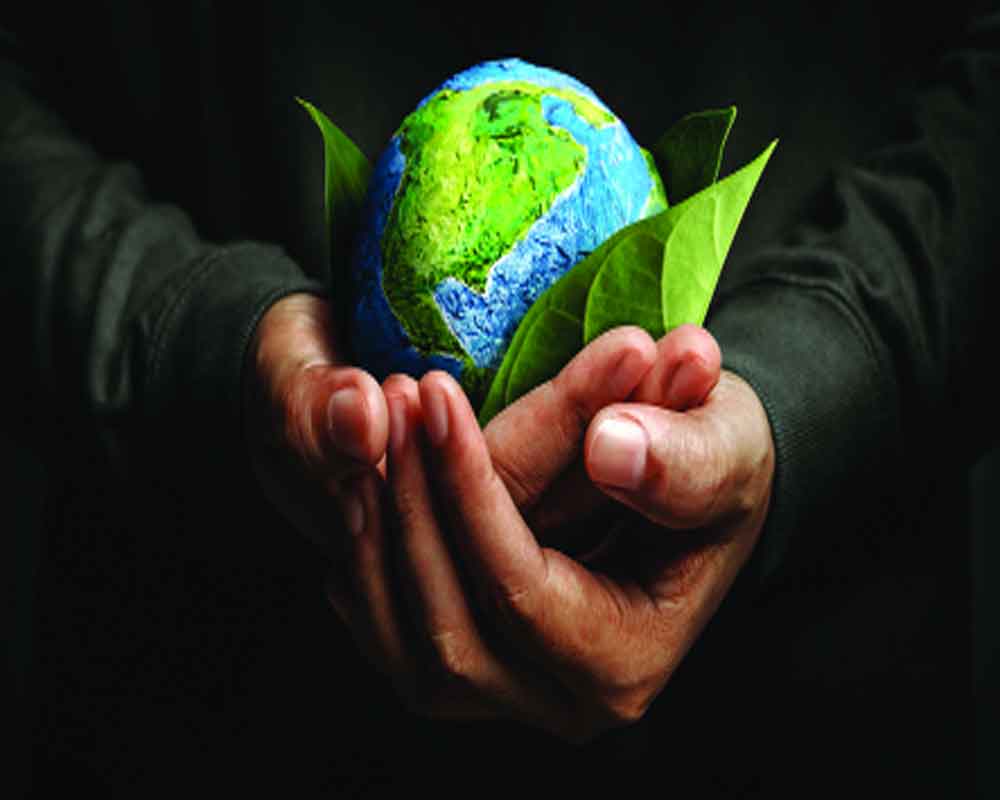To return to a life of harmony with nature, we need to realise our spiritual identity
A few centuries ago no one worried about climate change, because there was no reason to do so. But as humans extracted more from nature and dumped an increasing amount of waste, including highly toxic substances, on it, the ecological balance began to get disrupted. This process has accelerated over the centuries and brought us to the present situation where, according to some experts, the entire human race faces extinction shortly.
Climate change and global warming are sometimes thought of as things that will happen in the future. But scientists are finding increasing evidence that the planet is changing now - and that people must take a large share of the blame for this phenomenon. They further explain that excessive carbon emissions through industrial and vehicular pollution, use of CFCs and plundering of forests and natural resources have depleted the ozone layer. This has trapped more and more solar radiation inside the earth’s atmosphere. As a result, the earth is heating up which has begun to trigger a chain of natural upheavals like floods, earthquakes, tsunamis and landslides in recent times.
To prevent such an eventuality, humans need to work on themselves. Man does not need to master nature. The human soul is the master of all that is material. It is when the soul begins to identify itself with the body that it comes under the influence of matter and vices. In the Golden and Silver Ages, when all human souls had self-awareness and divine qualities, nature was their obedient servant. The elements of nature made life pleasant in that era, which is remembered in religious texts as paradise or heaven.
Because the divine beings of that world were free of vices, they never exploited or despoiled nature. Instead of having to be environment-friendly, they had a truly friendly environment. They were friends not only to their fellow beings but also to all matter. This State of affairs continued till the beginning of the Copper Age when the souls forgot who they were and began to come under the influence of the body and the vices. They then began to exploit natural resources, gradually harming the environment. In return, nature too ceased to obey souls who had lost mastery over themselves. As the influence of the vices grew, so did the plunder of nature and what was once a harmonious relationship turned more into one between an exploiter and the exploited.
The Prime Minister of India in his speech at the UN said ‘“We can achieve the same level of development, prosperity and well-being without necessarily going down the path of reckless consumption. It doesn’t mean that economies will suffer; it will mean that our economies will take on a different character. For us in India, respect for nature is an integral part of spiritualism. We treat nature’s bounties as sacred. Yoga is an invaluable gift of our ancient tradition. Yoga embodies unity of mind and body; thought and action; restraint and fulfillment; harmony between man and nature; and a holistic approach to health and well-being. It is not about exercise but to discover the sense of oneness with yourself, the world and nature. By changing our lifestyle and creating consciousness, it can help us deal with climate change.”
Now, if we wish to go back from the brink and return to a life of harmony with nature, we need to realise our spiritual identity and values. Such awareness will make us naturally eco-friendly and send out a positive energy that will bring the elements of nature into harmony with us again. If a critical mass of humans begin to live with this spiritual awareness, nature will by itself become our friend and humanity will look at a golden instead of a doubtful future.
(The writer is a spiritual educator and a popular columnist; views are personal)


























